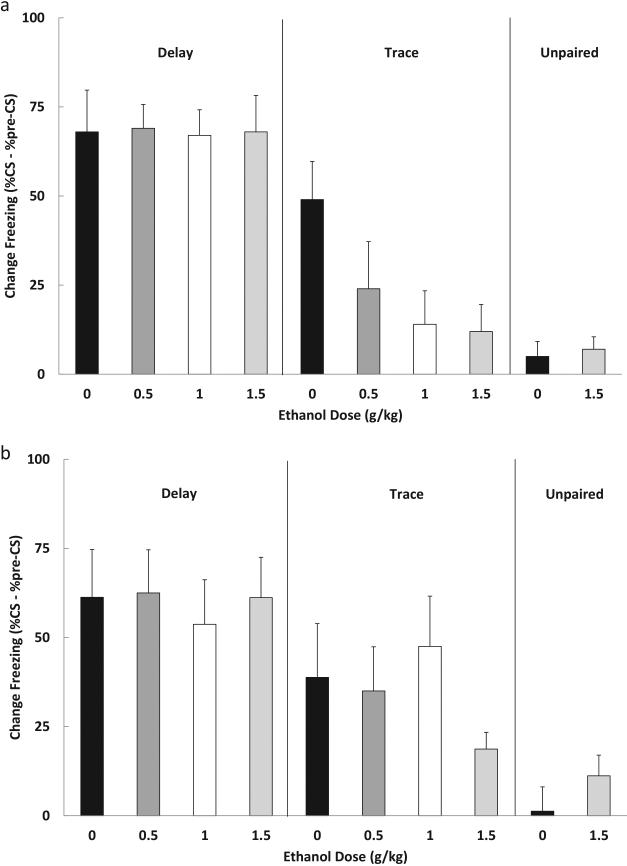Figure 1.
Results of Experiment 1a from (a) adolescents and (b) adults showing mean (+/− SEM) CS-elicited freezing (% CS freezing - % pre-CS freezing). Delay conditioning was unaffected by pre-training ethanol. Both adolescent and adult subjects exhibited high levels of CS-elicited freezing during the test and all groups differed significantly from unpaired controls. In contrast, pre-training ethanol impaired trace conditioning in adolescent subjects. CS-elicited freezing was reduced to control (unpaired) levels following 0.5, 1.0 or 1.5 g/kg ethanol. Adult subjects were less sensitive to the disruptive effects of ethanol in trace conditioning. Reduced CS-elicited freezing was only observed with the highest (1.5 g/kg) dose of ethanol in animals of this age.

